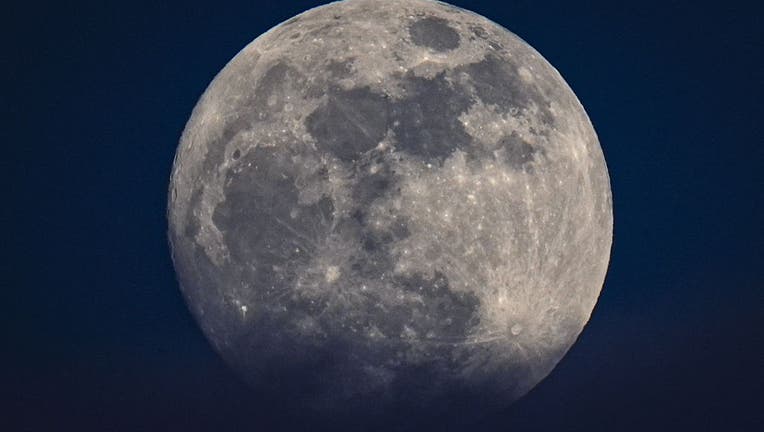Full moon myth: Study finds no link between moon, death rates

(Photo by Metin Aktas/Anadolu via Getty Images)
MILWAUKEE - If you have kids, you have likely blamed the full moon for their less than perfect behavior at least once a month and, in the world of senior care, the full moon is often blamed for a surge in deaths every 28 days.
But, can a full moon really nudge someone closer to the great beyond? According to a new study: not really.
FREE DOWNLOAD: Get breaking news alerts in the FOX LOCAL Mobile app for iOS or Android
Moon phases
What they're saying:
In a comprehensive 10-year analysis published in Scientific Reports, researchers investigated moon phases and weather conditions to see if they influenced mortality in a palliative care unit in Germany. Here is what they found.
Moon phases don't matter: From full moons to new moons, and waxing to waning, none had a statistically significant influence on daily death rates. The average number of deaths per day was nearly identical across all moon phases—effectively debunking centuries of lunar lore.
Featured
Here are the new U.S. lightning capitals based on 2024 data
The latest annual lightning report reveals the latest lightning capitals across the U.S.
Weather isn't the Grim Reaper either: Despite concerns about heat sensitivity in vulnerable populations, the study found no correlation between temperature, barometric pressure, or humidity and mortality. Not even during the occasional scorcher.
Palliative care provides a buffer: The researchers suggest that attentive, individualized care in palliative settings may shield patients from external stressors like heat. The unit's stable indoor environment and emphasis on comfort may explain why weather had little impact.
Myth vs. Data: The disconnect between public perception and science may stem from psychological tendencies like apophenia (seeing patterns where none exist) and confirmation bias. Once we believe in the "full moon effect," we tend to see only the data that supports it.
Study findings
Why you should care:
The findings of this study offer several practical benefits for us humans, especially in health care settings, public education and even policymaking. Here are a few:
Promotes evidence-based care: Understanding that neither moon phases nor day-to-day weather significantly influence death rates in palliative care helps caregivers focus on what truly matters such as personalized, compassionate care, rather than unproven beliefs. This can improve resource allocation, reduce unnecessary stress among staff, and reinforce confidence in medical decision-making.
Reduces fear and misconceptions: The study directly challenges the widespread myth that full moons trigger more deaths. Debunking this can ease anxiety for patients, families, and even health care workers who may otherwise worry about "bad omens." Dispelling such myths promotes mental well-being and encourages trust in science-based explanations.
SIGN UP TODAY: Get daily headlines, breaking news emails from FOX6 News
Highlights the value of controlled, comfortable environments: Although extreme temperatures are known to affect general population mortality, this study showed that high-quality care in palliative settings can buffer those effects. This underscores the importance of maintaining comfortable, well-managed environments—especially for vulnerable patients. The findings could inform future facility design and heat mitigation strategies in end-of-life care.
Encourages critical thinking and scientific literacy: By showing how cultural myths (e.g., full moon = more deaths) don’t hold up to data, this study encourages critical thinking and scientific skepticism. It helps the public become more discerning about what they believe—and why—especially when misinformation spreads easily.
The Bottom Line:
While the moon might light up the night sky (and stir up some drama in ER folklore), it's not dictating the timing of our final breath at least not according to this study.
This study doesn’t just tell us what isn't influencing death rates, it also reminds us what is: attentive care or lack there of, scientific evidence, and human connection.
But old myths die hard. So next time someone blames the full moon for a rough night on the ward, just smile and say, "Actually, the science says otherwise."
The Source: Mueller, E., Brönner, M., Schuster, F., van Oorschot, B., & Roch, C. (2025). Exploring the influence of moon phases and weather on mortality in a palliative care unit over a ten year period. Scientific Reports, 15, Article 18059. https://doi.org/10.1038/s41598-025-03184-4


